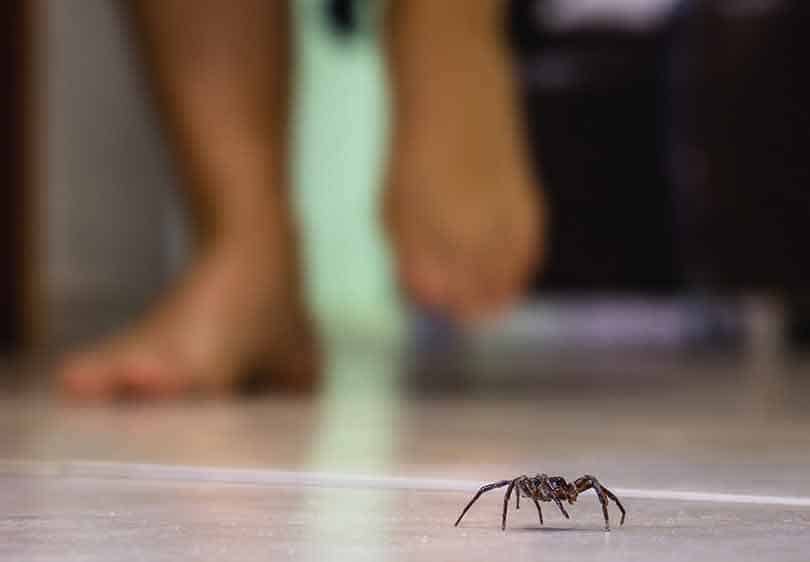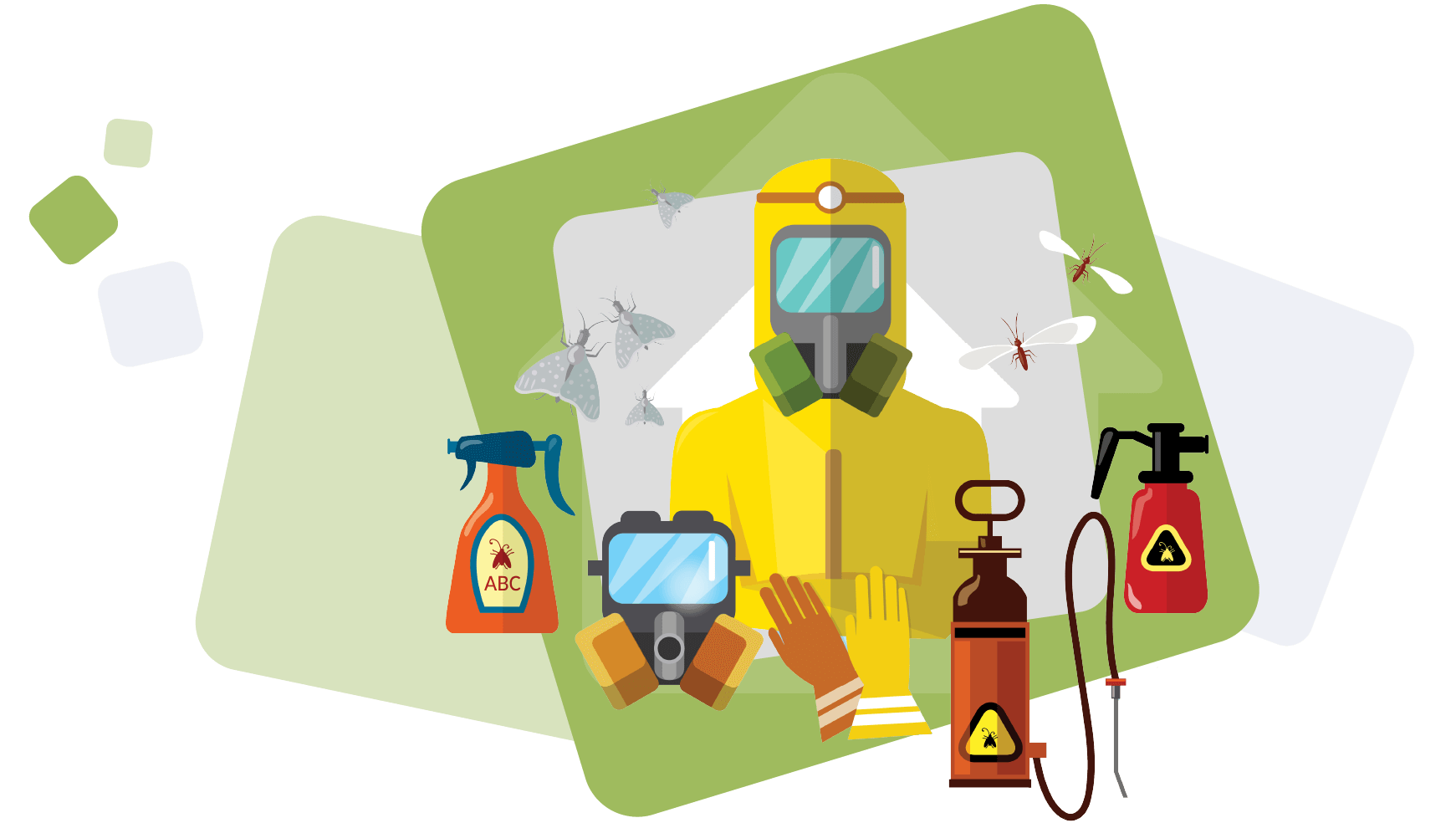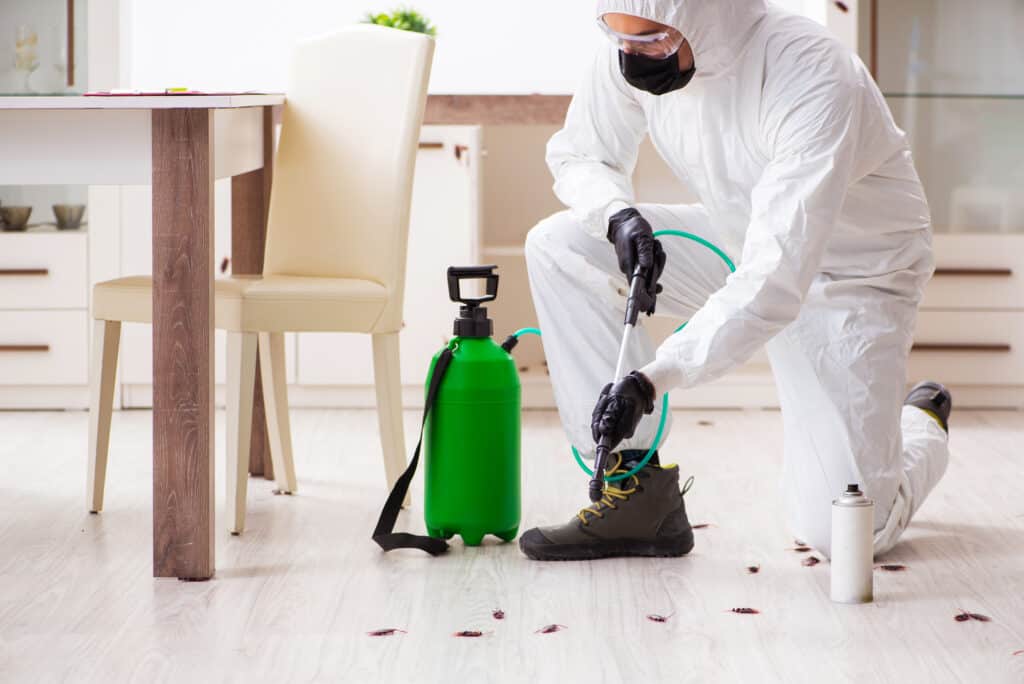Say Goodbye to Unwanted Visitors: Orem Pest Control at Your Solution
Wiki Article
Uncovering the Various Kinds of Pest Control Techniques and Their Applications
Parasite control is an important facet of preserving a healthy and secure environment, whether it be in domestic, industrial, or agricultural settings. Numerous strategies have been developed and improved throughout the years to properly alleviate and manage bug problems. From chemical methods that target certain insects to biological strategies that harness all-natural predators, the realm of parasite control is huge and varied. Comprehending the different kinds of bug control strategies and their applications is important for executing one of the most appropriate and sustainable solutions. Allow's check out the intricacies of these approaches and how they can be effectively utilized to attend to pest-related difficulties.Chemical Bug Control Techniques
Chemical pest control techniques are widely used in farming and bug administration to successfully eliminate or manage pest infestations. These techniques entail using chemical compounds, such as pesticides, insecticides, and herbicides, to remove or lower parasite populaces that position a danger to plants, animals, or human health. Chemicals, for instance, target specific pests like insects, rats, or weeds, disrupting their life cycles or causing direct harm upon contact. Herbicides are specifically designed to control unwanted plants that competes with crops for resources and nutrients. Pesticides, on the other hand, are made use of to combat insect bugs that can damage crops and transmit diseases.While chemical parasite control methods can be extremely efficient in taking care of pest populaces, they likewise increase concerns concerning prospective environmental and wellness risks. It is vital to follow safety and security guidelines, make use of integrated pest administration approaches, and take into consideration different approaches to decrease the negative impacts of chemical bug control techniques.
Biological Bug Control Approaches
 Biological bug control methods use living microorganisms to minimize and manage insect populaces in a ecologically friendly and lasting manner. One common method is the launch of ladybugs to fight aphids in yards, as ladybugs are natural killers of these devastating bugs.
Biological bug control methods use living microorganisms to minimize and manage insect populaces in a ecologically friendly and lasting manner. One common method is the launch of ladybugs to fight aphids in yards, as ladybugs are natural killers of these devastating bugs.
Organic parasite control methods use a number of advantages over chemical techniques. They are usually safer for the environment, as they do not leave harmful residues or add to air pollution. Furthermore, these methods are commonly much more targeted, influencing just the insect species without hurting advantageous insects or various other microorganisms. Moreover, organic control can be a long-lasting service, as the presented microorganisms can establish sustainable populations and supply recurring parasite monitoring. On the whole, biological bug control methods offer a all-natural and effective option to conventional chemical therapies, advertising a balanced community and much healthier settings.
Physical Parasite Control Approaches
Making use of physical approaches to manage parasites includes using non-chemical or mechanical methods to manage and minimize bug infestations successfully. These methods depend on physical barriers, catches, and other strategies to discourage and remove parasites without making use of sites harmful chemicals. One typical physical insect control approach is the installment of displays, fencings, or nets to block insects from entering certain areas. This technique is especially efficient in shutting out pests and little pets from buildings or yards.One more physical strategy is making use of catches, such as snap catches for rats or pheromone catches for insects. These traps aim to record parasites without posturing any danger to human beings or the environment. In addition, physical control approaches can include methods like handpicking insects off plants, using vacuum gadgets to remove insects, or using warm treatments to remove bed insects and other bugs in ravaged areas.
Integrated Pest Administration Strategies
Implementing a holistic strategy to pest monitoring, Integrated Pest Administration (IPM) techniques aim to incorporate different efficient methods to manage and protect against parasite problems while reducing environmental effect and making certain sustainable bug control methods. IPM entails the integration of multiple control approaches such as organic control, social techniques, mechanical control, and the careful use pesticides.

In addition, IPM emphasizes the significance of tracking and assessing pest populaces to determine the most ideal control methods. By executing IPM techniques, bug control initiatives become a lot more targeted and effective, decreasing the threats connected with extreme chemical usage and promoting lasting bug administration services.
Natural and Organic Insect Control Options

One preferred organic insect control approach is neem oil, derived from the seeds of the neem tree, which serves as a repellent and interferes page with the growth and development of insects. Diatomaceous planet, a natural silica-based powder, is another reliable organic pest control alternative that functions by drying out bugs upon contact. By integrating natural and natural insect control options right into insect administration methods, people can successfully control bugs while decreasing damage to the environment and advertising sustainable practices.
Verdict
In verdict, numerous pest control methods such as chemical, organic, physical, integrated parasite monitoring, and natural options are readily available for properly taking care of parasite problems. Each technique has its own advantages and applications relying on the sort of parasite and the environment. By understanding the different sorts of pest control strategies and their applications, individuals can make enlightened choices on one of the most ideal technique to manage bugs and shield their property.Chemical insect control techniques are widely used in agriculture and bug administration to effectively eliminate or control pest infestations - Orem Pest Control. Natural parasite control techniques entail using biological control agents, such as parasites or predators, to take care of insect populations. By including natural and organic parasite control alternatives into pest administration techniques, individuals can properly regulate parasites while reducing harm to the setting and advertising lasting practices
In learn the facts here now conclusion, various insect control methods such as chemical, organic, physical, integrated pest administration, and natural options are readily available for successfully taking care of pest invasions. By comprehending the different types of parasite control strategies and their applications, people can make enlightened choices on the most suitable method to regulate insects and protect their residential property.
Report this wiki page